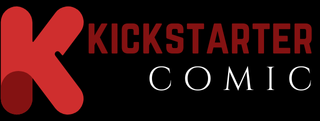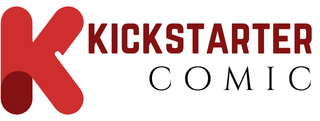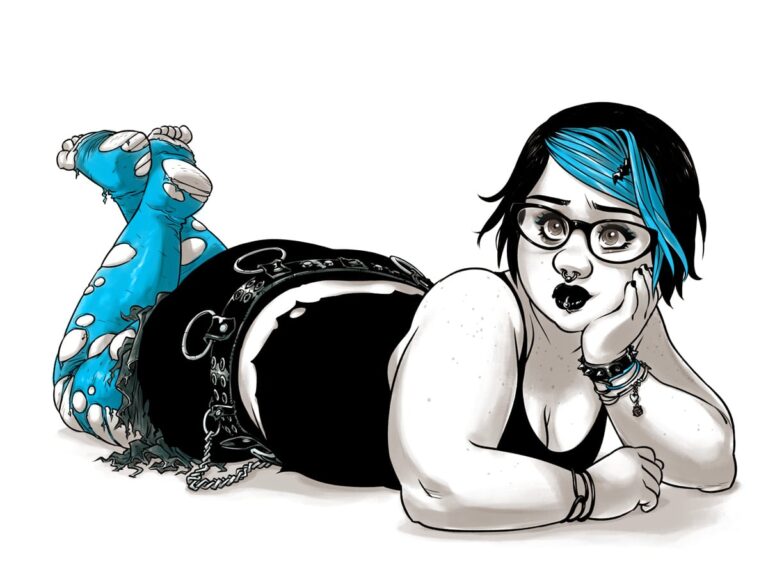Wet Moon is a cult classic comic book for a reason – over the course of seven volumes and set in the American south, the series beautifully tells the stories of over a dozen young adults growing up in goth, punk and emo subcultures in the 2000s. To celebrate the 20th Anniversary of the series in 2024, Oni Press has re-released Wet Moon in deluxe editions with new cover art, additional materials and oversized formatting. The Beat reached out to writer / artist Sophie Campbell on how it feels to look back on the series after 20 years.
This interview has been transcribed and edited for clarity.
JARED BIRD: Hello and thank you so much for your time. The first volume of Wet Moon’s 20th Anniversary Edition came out from Oni Press November 26th, 2024. What’s it been like, celebrating 20 years of Wet Moon?
SOPHIE CAMPBELL: It’s definitely kind of tough for me. I think most artists and writers look back at their older stuff, even from a few years prior, and go ‘ugh, I wish I could’ve done this better. I would’ve done this differently.’ Wet Moon is from 20 years ago – I was a baby when I did those first couple books! When I go through the proofs to fix mistakes and check everything, my immediate thought is ‘Oh, I hate this. Why did I draw like this? It’s so horrible!’. I couldn’t draw hands. I still can’t draw hands! It’s definitely not embarrassing, that’s too strong, but it’s humbling for sure. There’s a part of me that doesn’t want an anniversary collection at all, and I want it to all go away and have no one ever see it again!
BIRD: Did you expect Wet Moon to still have an audience after two decades? What do you think causes people to come back to it?
CAMPBELL: I guess it’s surprising now, but at the time, especially during the earlier books, I didn’t really think about it at all. What it would become. I never thought about the future at all during those days. I was almost goofing off. ‘I’m just doing this goth girl comic which is about nothing!’. It was me goofing off with all the stuff I could put into the comic’s plot and obviously nowadays I still get messages from people who have just discovered it, which is bananas to me to think about.
BIRD: I think that’s part of the appeal for me. When I first read Wet Moon, I liked that it was an unrestrained test field of whatever you wanted to do. Someone gets murdered in the first volume! It’s so out of left field – It’s a slice of life comic about goth girls and then there’s a dead body, and it doesn’t pick up on that thread for quite a while.
CAMPBELL: Right, yeah!
BIRD: I love the unrestrained creative energy of it.
CAMPBELL: That was definitely part of it. There were no restrictions. The editors gave me pretty free reign. I don’t even know if they proofread some of the stuff, to be honest! Even nowadays when I’m working on other comics, I have to keep myself interested, I guess. It’s an ongoing struggle. In Wet Moon, I still love all those characters, but beyond the story of the core group and characters I was like ‘I really want to draw someone getting stabbed.’ or ‘What if they go to a comic convention?’. That last one seems ridiculous to me now, because I don’t want to draw all those crowd scenes! I’d never do that now. ‘What if my friend Kirk was in the comic, and got punched by one of the characters? That would be funny.’ A lot of it came from that kind of method. Obviously there was the main plot with romance and coming of age, but what if there was a giant boar, or a Casey Jones-style vigilante? A lot of that is me trying to get excited about drawing these books. On some level, I was just seeing what I could get away with.
Art by Sophie Campbell
BIRD: Oni Press both put out the original Wet Moon and the new re-release. What’s your relationship with them been like?
CAMPBELL: It’s been really great. It’s really different now, because almost everyone I worked with on the original release of Wet Moon has moved on. My current editor, Bess Pallares, is great and they’re always very amenable with what I want to do. They’re very accommodating with what the series is and isn’t, and there’s no attempt to make it more marketable or something which I appreciate. I always regretted not doing more with Oni Press. They’ve always been a safe space for me. I always know that they’re there. I was working with them even before Wet Moon, so they’ve been there since ground zero of my career and they are still there. It’s comforting.
BIRD: They’ve been putting out great books this year. It’s really cool to see them show love to the classic books in their library and keep them in print as well. I really like that.
CAMPBELL: Yeah, me too! They didn’t have to put out those new editions of Wet Moon, they could’ve just reprinted the previous editions. It feels like it’s got a good home. Some other indie stuff I’ve done over the years hasn’t had that. Shadoweyes has jumped from publisher to publisher, but Wet Moon has always been with Oni. They’re good at what they do, and they know what they’re doing. It’s nice.
BIRD: Something I love about Wet Moon is how messy and flawed the characters can be. Rereading the first few volumes, I was struck by how awful they can be to each other. They’re messy. What tips would you give creators looking to make nuanced characters?
CAMPBELL: Don’t shy away from that stuff. It’s tough, because I see people talk about ‘unlikeable’ protagonists, or criticizing shows where everyone is a piece of shit. There’s something to be said for that! You need an entry point, and if everyone is obnoxious off the bat, you might not connect to it. For me personally, I like to see when characters are kind of fucked up, with good qualities and bad qualities. Genuine bad qualities, not just passive flaws like ‘oh, they’re too ambitious!’. Is that a flaw though? That’s partially a good thing. Think more along the lines of someone who doesn’t consider the feelings of others. That’s a genuine flaw. I find that stuff kind of endearing. Sometimes even when a character has little to no redeeming qualities, there’s still something compelling about that. I like it when other writers lean into that. You don’t see it super often, so when it does, it’s really interesting, whether or not there’s even an arc. Sometimes people don’t get better, they get worse! There’s a reality to that which I like.
BIRD: That’s something I really like about Wet Moon. Characters will make a mistake, know that they’ve made a mistake, and they will do it again at some point. They don’t magically stop having an issue with it. They consciously have to engage with it and work on it. It’s so true to life, and it’s not just ‘by the end of this volume, they are a completely different person!’
CAMPBELL: People don’t really learn anything! Well, they do, but it’s an ongoing struggle. A lot of the time people recognise flaws in themselves and they’re fine with it. They don’t feel the need to change. In Wet Moon, there’s a voyeuristic quality to it. There’s still editing, and I can’t show every single second of a character’s life, but it’s kind of like you’re sitting in on somebody and they don’t have the opportunity to clean themselves up. You get to see them at their worst, and at their best if they do have a best. That was the core idea of Wet Moon in a lot of ways. I wanted to show the range of what any particular character could be.
Art by Sophie Campbell
BIRD: The apartment they live in is so dirty, all of the time. You don’t really see that in a lot of stories. You don’t see what real mess looks like.
CAMPBELL: I totally agree! Part of that is that I like drawing garbage. In the first couple books there’s a sub-sub-subplot of the custodial staff at the school, and part of that was me liking to draw piles of garbage. Shadoweyes is all about garbage too. They live in a dystopian city covered in trash which I like to draw. A lot of that stuff is also based on my experience in Savannah for college. I lived with one of the messiest people I’ve ever met in my life. We didn’t get the deposit back for that. Not intentionally, she was just a messy person. Wet Moon had a lot of that kind of stuff. I was reflecting on it a few years after I graduated, looking back and going ‘God, we were disgusting!’. I don’t know if it’s still like that, but it was just nasty.
BIRD: Do you ever get tempted to make an eighth book of Wet Moon?
CAMPBELL: Yeah, definitely. Back in the day, I always said Wet Moon would just keep going until I got sick of it or Oni didn’t want to publish it anymore. It got to a point where I wanted it to be twelve books, then eight, and at seven I decided it would be the last one. I don’t know how much is really resolved in the seventh book, but I definitely think about doing an eight book or some kind of spin-off. A one-off thing, like visiting the characters in their 30s or something. I definitely think about it. I’ll get a message from a particularly enthusiastic fan, and that will get me going again, and I feed on that excitement. What would the characters be up to? I definitely think about it sometimes.
BIRD: I do like that it just kind of stops. You’re seeing their lives, and then you stop. You know their lives will carry on.
CAMPBELL: There’s not a resolution in volume seven, but I wanted there to be a shift that you could feel. The core cast meet in the snow, and they’re all hanging out, and something has shifted, even if you don’t know what it is. Cleo finally confronts Vincent after seven books. It does kind of pull away and just end, like you were saying.
BIRD: You mentioned earlier that you put a lot into Wet Moon which was just things you found interesting. Is there anything you wish you put in Wet Moon, but didn’t get to do?
CAMPBELL: In Savannah, there was this story about an undetonated warhead off the beach. That was always something I wanted to put in there. It explodes or something, and takes a chunk out of Wet Moon. I always kept that in my back pocket, but I never did it. Volume seven went through a lot of changes. I had a whole other storyline thumbnailed, and the book was twice as long. There was a whole section about the characters going up north for Christmas break. They stay with Martin’s family. A whole plotline that was set in upstate New York. There’s shades of that, but originally it was a lot longer. I still regret not doing it. It would’ve been a massive undertaking, which is part of why I cut it, but part of me wishes I buckled down and drew it. It’s mostly regret in that sense, not ‘I wish I put a vampire in it.’ Though that would’ve been cool though! I mostly wish I’d spent more time on certain characters, like Penny and Fern. I wish I’d finessed some of the more problematic elements better, like Audrey’s roomate having sex with a teenager. I had a whole backstory about the stain on Cleo’s floor, and I cut it out, because I thought the mystery was better. There was more stuff with the alien ghost in Martin’s apartment. There was a whole other storyline involving a serial killer Agent Wolfe was tracking, and at some point I cut it all out because it was turning into a police procedural. I just had more of everything, I guess!
Art by Sophie Campbell
BIRD: You mentioned earlier that you might go back to Wet Moon for a short story. If you did a two page comic on the origin of the stain, it would be kind of perfect.
CAMPBELL: There would be no way to fit it into two pages! I’ve heard some bonkers theories from readers over the years. The spot is a can of worms. One of my favorite shows is Twin Peaks, which you can probably tell. There’s a lot in Twin Peaks which is ambiguously supernatural, and there’s a lot about the residual psychic damage of any event that occurs. There’s a whole undercurrent of that in Wet Moon, which I shied away from so that I didn’t overly explain it.
BIRD: Wet Moon is a time capsule of life in the 2000s, a decade which is almost coming back into fashion now. What’s a fashion statement that you want to stay in the 2000s?
CAMPBELL: Nothing! Bring it all back. It’s all great. Big baggy pants, low rise jeans, ladies with their underwear poking out being stylish and sloppy. It’s all cool.
On second thought, there is actually one thing I do hope stays in the 2000s – shitty, pencil-thin eyebrows. When I looked back at Wet Moon for the anniversary release, I saw I drew all of them with really thin eyebrows! I’m a big fan of the ‘instagram eyebrow’, the kind of highly maintained thicker eyebrow shape, so if we could combine the two it would be perfect.
BIRD: I think jorts can stay in the 2000s too.
CAMPBELL: Jorts! Ahaha. Those can stay too then.
BIRD: What do you want readers to take away from Wet Moon after all this time?
CAMPBELL: I want them to take away whatever it says to them. Wet Moon, more than any of my other projects, is one where I have a ‘death of the author’ approach. I like seeing readers have their own theories, and what characters people love and which they hate. Part of the reason I ended Wet Moon was that there were so many characters, which is why the cast of volume seven is so trimmed down. After every volume release, I’d have people asking why certain characters didn’t get more pages, and I didn’t even realise people liked some of those characters! I’ve always liked seeing the thoughts of fans and readers. I’m always surprised by what people take from it, and I’d never want to say ‘you have to take this specific message from it.’ It’s up to the reader to decide what they take away.
BIRD: If you had to recommend one of your other works to fans of Wet Moon, what would it be?
CAMPBELL: I guess Shadoweyes, because that’s my other big creator-owned project. You could read my run on Teenage Mutant Ninja Turtles as well, which I just wrapped up recently, or Jem and The Holograms.
BIRD: Have a lovely day.
CAMPBELL: You too!
Art by Sophie Campbell
Like this:
Like Loading…


